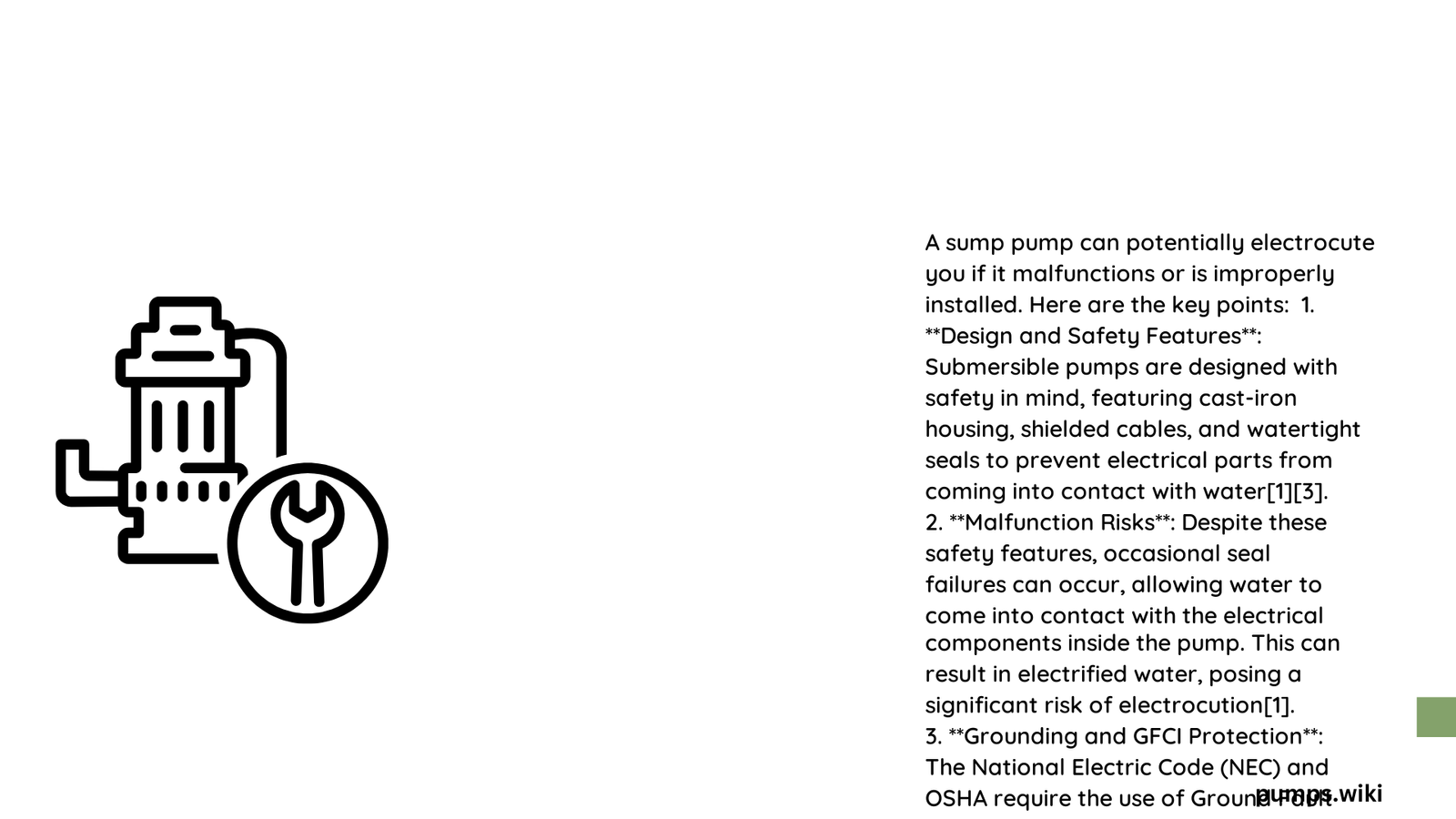Sump pumps are essential for preventing basement flooding, but they also pose significant electrical shock risks. Water and electricity create a dangerous combination that can potentially lead to electrocution if proper safety measures are not implemented. Understanding the specific electrical hazards, grounding requirements, and maintenance protocols is crucial for homeowners to protect themselves from potential life-threatening situations.
What Makes a Sump Pump Potentially Dangerous?
How Does Water Increase Electrical Shock Risk?
Water is an excellent conductor of electricity, which means any electrical malfunction or exposed wiring near a sump pump can create a deadly scenario. The primary risks include:
- Ground Fault Potential: When electrical current unexpectedly travels through water
- Exposed Wiring: Cracked or damaged electrical components
- Improper Installation: Lack of proper grounding mechanisms
What Voltage Levels Pose Electrocution Threats?
| Amperage Range | Potential Physiological Effects |
|---|---|
| 0-1 mA | Typically imperceptible |
| 1-5 mA | Mild tingling sensation |
| 50-150 mA | Severe muscle contractions, potential respiratory failure |
| 150-200 mA | High risk of cardiac arrest |
What Are the Primary Electrical Shock Mechanisms?
Electrical shock from sump pumps can occur through multiple mechanisms:
- Direct Contact: Touching exposed electrical components
- Ground Fault: Unexpected current path through water
- Damaged Insulation: Compromised electrical wiring
- Improper Grounding: Lack of effective electrical safety systems
How Can Homeowners Prevent Sump Pump Electrocution?

What Safety Measures Reduce Electrical Risks?
Implementing comprehensive safety strategies is crucial:
- Install GFCI Outlets: Mandatory for areas with potential water exposure
- Professional Installation: Hire licensed electricians
- Regular Maintenance: Inspect electrical components periodically
- Use Waterproof Sealing: Protect electrical connections
- Avoid DIY Electrical Repairs: Consult professionals
What Warning Signs Indicate Potential Electrical Hazards?
Homeowners should watch for:
– Unusual tingling sensations near the pump
– Visible wire damage
– Corrosion around electrical connections
– Intermittent pump functionality
– Unexplained circuit breaker trips
What Legal and Safety Codes Govern Sump Pump Electrical Installation?
Which Regulations Protect Homeowners?
- National Electric Code (NEC): Provides comprehensive electrical safety guidelines
- Occupational Safety and Health Administration (OSHA): Establishes workplace electrical standards
- Local Building Codes: Specify regional electrical installation requirements
Conclusion: Proactive Safety Is Key
While sump pumps can potentially electrocute you, proper installation, maintenance, and awareness significantly mitigate these risks. Homeowners must prioritize professional installation, regular inspections, and adherence to safety protocols.
Recommended Actions
- Schedule professional electrical inspection
- Upgrade to GFCI protection
- Implement annual maintenance checks
- Educate household members about electrical safety
References:
– Electrical Safety Foundation International
– National Electric Code Guidelines
– OSHA Electrical Safety Standards
